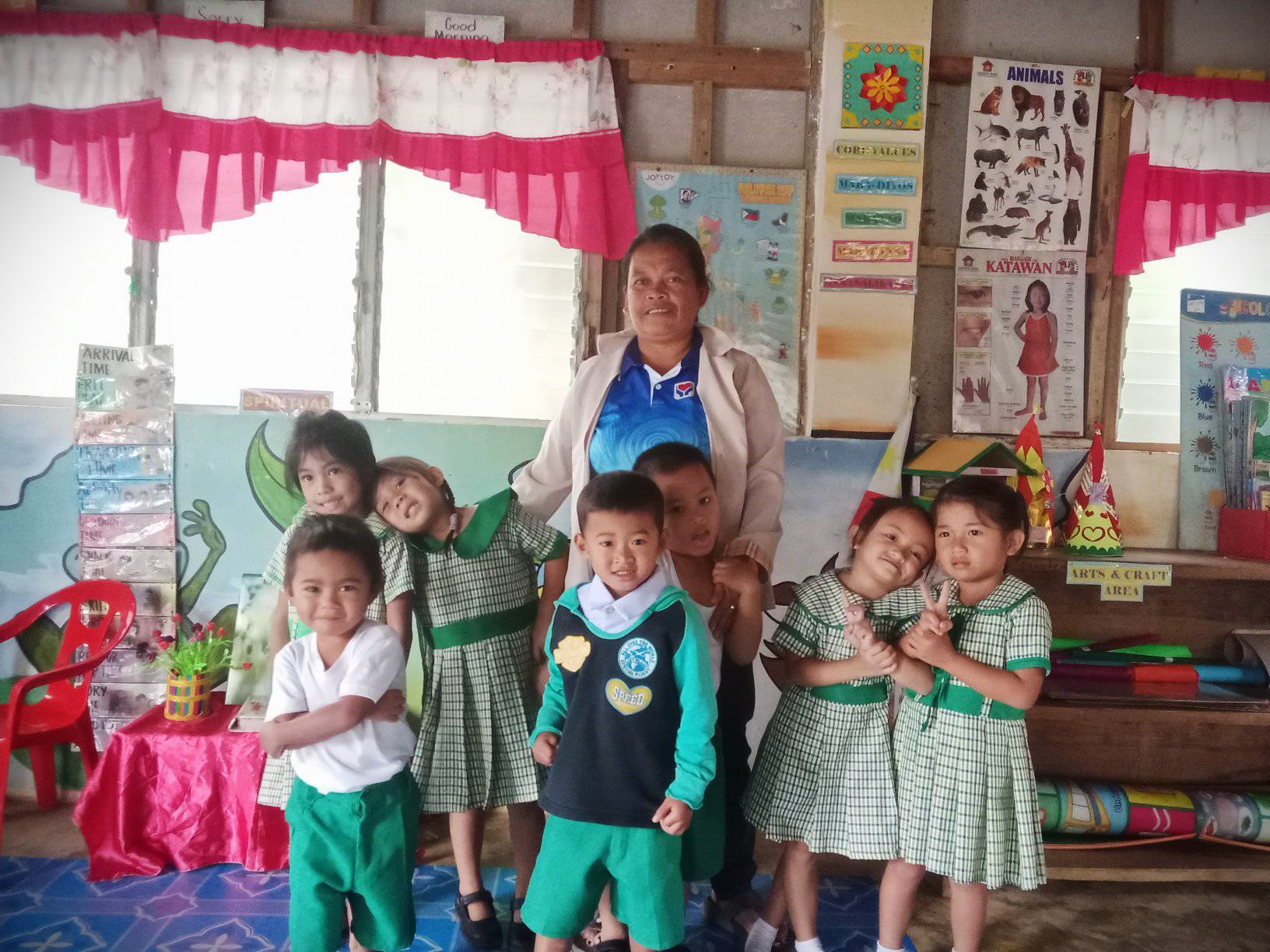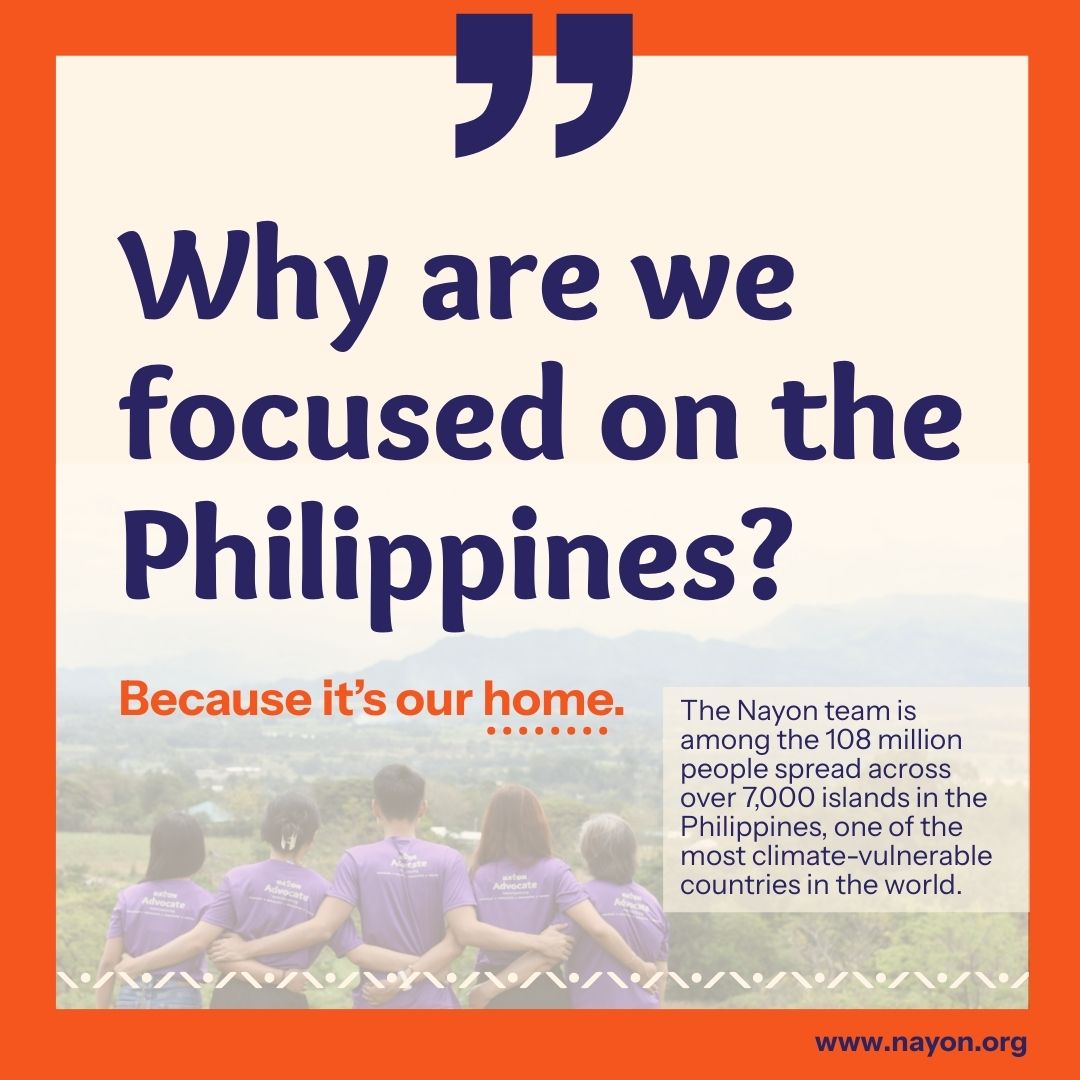Embracing Kapwa for over 25 Years: Josephine
For over 20 years, Josephine has been a vital presence in her community, guided by the Filipino value of Kapwa and a deep commitment to to serving others.

cornerstone of community
For over two decades, Josephine has been a cornerstone of her community in Don Salvador Benedicto. Her work—as a Children’s Development Worker, community volunteer, and Nayon Advocate—embodies the Filipino value of kapwa, a deep sense of shared identity and interconnectedness that drives her to serve not just as an individual, but as part of a collective.


A Commitment to Community
Josephine began her journey as a Child Development Worker 25 years ago. Despite earning only USD$105 per month, she remains committed and enthusiastic to teaching the 35 children in her daycare center.
Even though the daycare center lacks many essential materials such as chairs, tables, and educational supplies. Her persistence reflects her belief that education can be a powerful equalizer, especially in communities like hers where poverty incidence is among the highest in the country.
Josephine is also a long-time volunteer with a local self-help organization for women and families. Through this role, she supports mothers, caregivers, and other community members in building self-reliance and solidarity.
Kapwa in Action
At the heart of Josephine’s work lies the Filipino value of kapwa. It is not just about empathy—it is about the recognition that her well-being is inseparable from that of her community.
This spirit of shared responsibility guides her approach—whether she's teaching, leading environmental activities, or helping families adapt to sustainable practices.

Joining Nayon: Environmental and Social Advocacy
In recent years, Josephine joined Nayon’s Project Buhay as an advocate for clean cooking and environmental stewardship. Project Buhay promotes the use of high-efficiency cookstoves that reduce woodfuel consumption and air pollution in homes. As a resident of a community bordering one of Negros Island’s rainforests, Josephine immediately understood the relevance. Each year the distance she travels to collect wood increases due to deforestation and population growth.
As an Advocate, she actively teaches her neighbors how to use the clean cookstoves, why it’s important and creates awareness about climate change and its impact on the community.
Fueling the Future: Supporting Better Nutrition
Alongside her efforts in clean cooking and forest conservation, Josephine is also leading a new chapter in community care through Nayon’s Fueling the Future Nutrition Program. This initiative tackles malnutrition by empowering families with practical nutrition education and promoting backyard gardening—ensuring that every child has the right fuel to grow, thrive, and reach their full potential.
As food prices continue to rise, proper nutrition has become increasingly out of reach for many families. To address this, the first phase of the program involves Josephine preparing nutritious breakfasts and lunches for each child in her daycare, introducing them to new flavors and making sure their bellies are full. She also teaches parents how to cook healthy meals using affordable, locally available ingredients. Her message is simple: nutrition doesn’t have to be expensive when we make the most of what’s around us—root crops, fruits, and native vegetables.
A vital part of Fueling the Future involves bringing in local farmers to help children build a vegetable garden at the daycare. Through this hands-on experience, children learn how to plant, care for, and harvest their own food. After the first workshop, each child brings home seeds to start a garden with their family, turning a single lesson into a ripple of change across households. It’s a joyful blend of learning, nutrition, and family bonding—all rooted in community empowerment.
“Kapag nakikita ng mga bata kung saan galing ang pagkain nila, natututo silang pahalagahan ito,” Josephine shares. (“When children see where their food comes from, they learn to value it.”)
This hands-on approach has also sparked early curiosity in science and environmental care. Josephine believes these small moments help build a foundation for lifelong healthy habits and a deeper respect for the earth. This mission is personal for Josephine. She sees nutrition not just as an individual concern, but a shared community responsibility.
“Hindi lang ito tungkol sa isang bata. Kapag may batang malusog, mas malakas ang buong pamilya at mas handa sila sa kinabukasan.” (This isn’t just about one child. When a child is healthy, the whole family is stronger and more prepared for the future.)


A Shared Vision for the Future
She believes that true impact comes when people work together.
“Napagtanto ko na hindi kailangan ng malaking bagay para tumulong sa kalikasan. Kailangan lang natin magsimula lang sa maliit at sabay-sabay natin itong palakihin.” (I realized we don’t need to do big things right away to help the environment. We just need to start small and grow together.)



.jpg)





